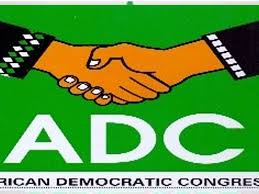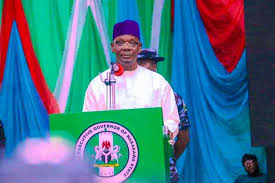Steve Onyeiwu
The international donor community is experiencing the so-called “donor fatigue,” whereby they are disillusioned with several years of aid disbursements to Africa, with few positive results. They have, therefore, become very reticent in supporting countries such as Nigeria.
Some may wonder why Buhari’s focus is on external, rather than domestic, debt. After all, some African countries, including Kenya, have used domestic currency government infrastructure bonds to finance investment in infrastructure. This approach to financing not only creates savings opportunities for residents, but also discourages capital flight. It shields African economies from the risks associated with borrowing in foreign currencies, including exchange rate risks and variable interest rates.
Unfortunately, domestic loans are not efficient sources of funding for Nigeria at this time. First, given the acute shortage of loanable funds in the country, government borrowing in the domestic financial markets will have the effect of raising already high interest rates, and thus crowd-out private investment.
Because many of the projects that would be financed by domestic loans are import-sensitive, domestic borrowing would further strain the foreign exchange market, causing the Naira to continue to lose value. This is quite apart from the inflationary implications of such an approach to development finance.
Another key question to pose is whether the use of debt to close the dual gap would make Nigeria’s aggregate debt level and debt service unsustainable. Available data, however, suggest that this fear is unfounded. The country’s net debt as a percentage of GDP was 11 per cent in 2015, one of the lowest in Africa. The ratio was 71 per cent for Ghana, 45 per cent for South Africa, 77 per cent for Egypt, 58 per cent for Mauritius and 55 per cent for Tunisia. Nigeria’s debt service burden (the percentage of export of goods and services devoted to principal payment and interests) was a paltry 2.9 per cent in 2015, the lowest of all African countries, with the exception of Algeria and a few small African countries (Guinea-Bissau, Sao Tome, Swaziland, and Uganda).
The Director-General of Nigeria’s Debt Management Office (DMO), Dr. Abraham Nwankwo, was therefore right when he said last November that the “current 16 trillion Naira debt profile of Nigerian governments is still within manageable limits.”
Critics of Buhari’s quest for external loans are perhaps still reeling, and understandably so, from the sad era of the 1980s, when Nigeria was caught in an inescapable debt trap. Back in 1987, Nigeria’s foreign debt reached a high of 110 per cent of GNP, far higher than the average of about 80 per cent for Sub-Saharan African countries. Nigeria’s debt service ratio was as high as 10 per cent in 1987.
There are other pragmatic questions to ask as well. Will the loan be put to proper use, such that the country would foster growth and have the capacity to repay the loan? Is this a one-time loan, or the onset of a culture of unrestrained borrowing – a process that often culminates in a debt-trap peonage? Are there perverse strings attached to the loan? What are the implications of the loan for Nigeria’s foreign policy and sovereignty? I suspect that many of those who oppose President Buhari’s quest for external loans are doing so because they fear that Nigeria might then be under the economic tutelage of shylock creditors such as the International Monetary Fund (IMF). Nigerians still remember the dreaded IMF “bitter pills” that debtors must swallow: deep cuts in social programmes that benefit the poor; drastic cuts in public-sector spending (including wage freeze, and retrenchments), as well as removal of subsidies on education, health, housing and public transportation.
As an undergraduate economics student in the 1980s, I recall the anxiety students felt about the IMF and the World Bank seizing control of the Nigerian economy.
Across university campuses, there were placards with the insignia: “Down With the IMF!” “IMF is a Neo-Imperialist Organisation!” “Say NO to IMF Loan!” The pervasive display of these placards was subsequently followed by massive protests across the country against General Ibrahim Babangida’s decision to implement the World Bank’s Structural Adjustment Programmes (SAP). It seems Nigeria has come full circle about the vexatious issue of external loans, and that nothing has really changed in almost 40 years! It is unbelievable, and utterly disappointing, that we are still debating whether or not Nigeria should seek external loans to finance the country’s economic development.
It is more so because Nigeria is blessed with vast natural and human resources, and has no business running around the world begging for money. But that is a reality we must accept, and the focus should be on how to mitigate the negative consequences of external loans – should Nigeria decide to opt for that option.
Loans are not like grants or gifts. Even when they are concessionary, they usually have some sort of conditions attached to them. And those conditions vary by the goals or the agenda of the creditors, as well as the negotiating prowess of the debtor. The issue, therefore, is whether the Buhari administration can negotiate loan conditions that are not detrimental to the Nigerian economy. The administration should disclose more details about the nature of the proposed loans; who the creditors are, repayment terms, duration of the loans, and the projects for which the loans will finance. It may also be necessary to put together a team of experts to evaluate, monitor and eventually assess the effectiveness of the loans.
Although I’m somewhat ambivalent about external loans, I’m leaning more toward supporting Buhari’s quest because of his pedigree in prudent financial management. He’s known to abhor profligacy, which means that external loans will be spent prudently.
His unrelenting onslaught on corruption suggests that external loans will not disappear into Swiss banks or financial institutions in the Cayman and other far-flung Islands. Neither will external loans under Buhari end up financing the importation of private jets or construction of humongous mansions in Abuja, Lekki, Ikoyi, Victoria Island and other high-brow areas of Nigeria. This, of course, depends on whether Buhari will be able to prevent those around him from corruptly enriching themselves, and whether he will have the courage to prosecute corrupt officials in his administration.
His recent instruction to the Attorney-General of the Federation (AGF) and Minister of Justice to investigate some of the top officials in his administration who have been accused of corruption is reassuring, but Nigerians are also watching to see how he handles the AGF’s recommendations. The outcomes of that investigation, as well as follow-up by President Buhari, will be instrumental in whether he will be perceived as genuinely fighting corruption, or engaged in double standards as some have alleged.
In conclusion, I will not support taking external loans under any administration that spends money on frivolous projects, or shares public funds among unproductive politicians, corrupt civil servants, phony oil and gas firms, and charlatans hanging around the corridors of power.
Onyeiwu is the Andrew Wells Robertson Professor and Chair of the Department of Economics, Allegheny College, Meadville, Pennsylvania, USA



